2021 Experiential Education in Action Workshop Descriptions

Back to Virtual 2021 Winter Institute Info
Menu
Empowering Student Leadership
1. Be the One - A Toolkit for Empowering Positive Student Leadership
Facilitators: Patricia Alviano & David Finkelstein
Description: This past year has forced a reckoning for Crescent School as an incubator to “develop men of character from boys of promise”. Be the One is a workshop designed to reimagine the training required for inclusive student leadership through the lens of the Everyday Hero, a student who has the knowledge, skills and tools to be aware, think empathetically and offer help. In this space, the ideal “hero myth” is replaced with an emphasis on smaller moments and self-awareness. This workshop will provide background information on our model and process for developing the Be The One programming and outline the strategic steps necessary to effect change in your own school while allowing room for collaboration between different organizations. It will also provide future support for your own “change initiatives”.
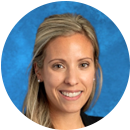 Patricia Alviano is an educator with seventeen years of experience in the independent school sector. Patricia focuses on student health and wellbeing. She applies current research of best practices to create professional learning pathways for teachers, parents and students. Following her appointment as the Interim Assistant Head of Middle School, Patricia completed the Principal's Qualification Program with a focus on Independent School Leadership. She holds a Master’s Degree in Education from the University of Western Ontario. Patricia Alviano is an educator with seventeen years of experience in the independent school sector. Patricia focuses on student health and wellbeing. She applies current research of best practices to create professional learning pathways for teachers, parents and students. Following her appointment as the Interim Assistant Head of Middle School, Patricia completed the Principal's Qualification Program with a focus on Independent School Leadership. She holds a Master’s Degree in Education from the University of Western Ontario.
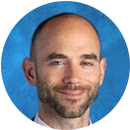 David Finkelstein has worked in a variety of educational environments, including Special Education, Adult Education, and Credit Recovery programs. His focus is on the relationship between Critical Thinking and Empathy. Currently, he works in the English Department of Crescent's Upper School, delivering content that emphasizes text-to-world connections. He has delivered curriculum design projects for a number of different organizations, including the Durham District School Board and the National Film Board of Canada. David Finkelstein has worked in a variety of educational environments, including Special Education, Adult Education, and Credit Recovery programs. His focus is on the relationship between Critical Thinking and Empathy. Currently, he works in the English Department of Crescent's Upper School, delivering content that emphasizes text-to-world connections. He has delivered curriculum design projects for a number of different organizations, including the Durham District School Board and the National Film Board of Canada.
2. Empowering Student Leaders to Build Safe and Inclusive Communities
Facilitators: Greg Gerken and Judy Kisor
Description: This workshop is a practical look at how to mentor student leaders to build, develop, foster, and maintain safe and inclusive school communities in which all students feel that they belong, have an equal voice, and whose lives and personal experiences are equally valued.
We will share, discuss, and practice a number of strategies for empowering student leaders to create safe communities, as well as presenting a model for student leadership development that gives them the skills, support, and practice to take on that responsibility. This framework for leadership is transferable to any school setting.
There will be time for application, reflection, and sharing. Participants in the workshop will be encouraged to bring a case study that they would like to work on -- such as building leadership in the classroom, or working with student groups or clubs. There will be opportunities throughout the session for participants to share and to apply what they have learned.
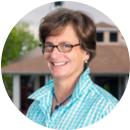 Judy Kisoris the Director of the Center for Ethical, Global Leadership at Chadwick School, Palos Verdes Peninsula, CA. In addition to developing a K-12 sequenced student leadership curriculum, Judy teaches AP Art History and Global Studies and has taught a required Leadership class for Chadwick School sixth graders. She co-facilitated the History/Humanities cohort at the June 2017 and June 2018 ISEEN Summer Institutes for Classroom Teachers with Chadwick teacher Meg Bailey. Judy was Head of Experiential Education at the American School in London where she and Greg Gerken collaborated on the Outdoor Leadership program and the required ninth-grade course, Foundations in Character, Service and Leadership at the American School in London. Judy Kisoris the Director of the Center for Ethical, Global Leadership at Chadwick School, Palos Verdes Peninsula, CA. In addition to developing a K-12 sequenced student leadership curriculum, Judy teaches AP Art History and Global Studies and has taught a required Leadership class for Chadwick School sixth graders. She co-facilitated the History/Humanities cohort at the June 2017 and June 2018 ISEEN Summer Institutes for Classroom Teachers with Chadwick teacher Meg Bailey. Judy was Head of Experiential Education at the American School in London where she and Greg Gerken collaborated on the Outdoor Leadership program and the required ninth-grade course, Foundations in Character, Service and Leadership at the American School in London.
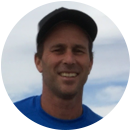 Greg Gerken is the department chair of English and Humanities at The Webb Schools, a boarding school situated near Los Angeles and in the foothills of the Angeles National Forest. He started his journey in experiential education at The American School in London where he taught an outdoor leadership course and helped to construct and teach a core ninth-grade class that was process-oriented and experiential, examining and building student awareness on the impacts of character and service on building community. His current work in experiential education includes a course integrating eco-literature and leadership theory with expeditions into the California wilderness where students utilize Kolb’s cycle to learn and reflect on their decisions and their connection to place. Greg Gerken is the department chair of English and Humanities at The Webb Schools, a boarding school situated near Los Angeles and in the foothills of the Angeles National Forest. He started his journey in experiential education at The American School in London where he taught an outdoor leadership course and helped to construct and teach a core ninth-grade class that was process-oriented and experiential, examining and building student awareness on the impacts of character and service on building community. His current work in experiential education includes a course integrating eco-literature and leadership theory with expeditions into the California wilderness where students utilize Kolb’s cycle to learn and reflect on their decisions and their connection to place.
Return to top
|
Environmental Justice & Sustainability
3. Small Spaces, Big Benefits: Growing Wellness and Biodiversity on Campus and Beyond
Facilitators: Zach Loeks & Ted Fish
Description: Our workshop is about rebirth and transformation. We will ask participants to reflect on the climate and ecological crises for just a moment. 99% of our energy will be directed to propelling ourselves with new vision and new tools to take effective, energizing action for the planet. Each participant will then go through a process to draw a picture of sustainability at their school from the perspective of finances, program and teaching model, inclusivity, or some other aspect. From this picture, participants will be led to "conceptualize" an idea to address a new direction/idea/vision for their school aimed to leapfrog past a problem towards a new vision for that aspect of independent schools. Participants will leave with the outline of an idea for "active experimentation" when they return to their role at school.
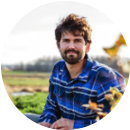 Zach Loeks is an author, illustrator, educator, designer and grower who specializes in Edible Ecosystem Design. He consults with colleges, schools, municipalities and homes across the world. He is the author of The Edible Ecosystem Solution (2020) and The Permaculture Market Garden (2018). Zach Loeks is an author, illustrator, educator, designer and grower who specializes in Edible Ecosystem Design. He consults with colleges, schools, municipalities and homes across the world. He is the author of The Edible Ecosystem Solution (2020) and The Permaculture Market Garden (2018).
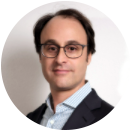 Dr. Ted Fish works internationally with independent and public schools, Universities and companies to build cultures of leadership. Formerly the Executive Director of the Gardner Carney Leadership Institute (gcLi), Ted specializes in helping teachers and senior administrators galvanize their leadership capabilities. Dr. Ted Fish works internationally with independent and public schools, Universities and companies to build cultures of leadership. Formerly the Executive Director of the Gardner Carney Leadership Institute (gcLi), Ted specializes in helping teachers and senior administrators galvanize their leadership capabilities.
4. Young, Gifted & Green: Empowering the Next Generation of Environmental Justice Leaders
Facilitators: LaTricea Adams & Michelle Mabson
Description: Young, Gifted & Green: Empowering the Next Generation of Environmental Justice Leaders will present attendees with a realistically radical approach to addressing and actively dismantling environmental racism. While the workshop is appealing to the practitioner, it also provides strategies for engaging in crucial conversations and simultaneously empowering youth to act and engage in solutions-focused advocacy through community engagement and public policy. Participants will walk away from this session with resources to best tackle environmental racism and injustice inside and outside of the classroom with exposure to culturally-sensitive resources and proven strategies that yield results in cleaner, greener, healthier and safer communities.
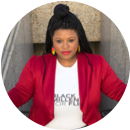 LaTricea Adams is the Founder CEO & President of Black Millennials 4 Flint, the first and only environmental justice and civil rights organizations founded by Black and Latinx Millennials with a focus on the eradication of lead throughout the nation. In addition to LaTricea’s work in the environmental justice space, she serves as a lifelong educator with teaching and executive leadership experience in large, urban districts such as Nashville, Memphis, and Washington, DC. LaTricea’s life motto is to be “supreme in service to all mankind”. LaTricea Adams is the Founder CEO & President of Black Millennials 4 Flint, the first and only environmental justice and civil rights organizations founded by Black and Latinx Millennials with a focus on the eradication of lead throughout the nation. In addition to LaTricea’s work in the environmental justice space, she serves as a lifelong educator with teaching and executive leadership experience in large, urban districts such as Nashville, Memphis, and Washington, DC. LaTricea’s life motto is to be “supreme in service to all mankind”.
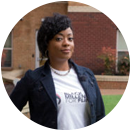 Michelle Mabson is a Co-Founder and Chief Advocacy Officer for Black Millennials 4 Flint (BM4F). Outside of her work with BM4F, after transitioning from the U.S. Environmental Protection Agency (EPA) under the Obama Administration, she serves as an Staff Scientist for Earthjustice, the nation’s largest nonprofit law firm. She is also a graduate of Howard University and the University of Michigan where she earned a dual Masters in Public Health and Masters of Science. Michelle Mabson is a Co-Founder and Chief Advocacy Officer for Black Millennials 4 Flint (BM4F). Outside of her work with BM4F, after transitioning from the U.S. Environmental Protection Agency (EPA) under the Obama Administration, she serves as an Staff Scientist for Earthjustice, the nation’s largest nonprofit law firm. She is also a graduate of Howard University and the University of Michigan where she earned a dual Masters in Public Health and Masters of Science.
Return to top
|
Experiential Education in the Classroom
5. Designing Capstone Projects for Impact: Agency, Advocacy & Audience
Facilitator: Emily Hamlin
Description: Part tour, part lab dissection, part interview and part workshop, this workshop will be an open examination of one model for approaching networked learning and elevating student agency. We’ll involve students in our presentation, dig into the design and execution of student-led capstone research projects that culminate in a free public online event we've called the Catalyst Conference.
The Catalyst Project and Conference has students each generate a beautiful research question and project, culminating in a "For Now" response that addresses the topic within their community. Student responses are captured on their conference webpages and visitors engage with the ideas and provide feedback during an asynchronous four-day conference.
Our workshop will use interactive tools to elevate participants' experiences, ideas and questions. The nature of the Catalyst Project and Conference design will encourage participants to self-navigate elements of the presentation according to their own goals and interests.
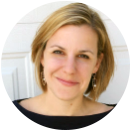 Emily Hamlin leads Global Online Academy’s work supporting students and member schools, drives enrollment growth, and ensures student and school perspectives are a critical component of strategic growth and decision-making. Emily consults with schools, leading strategy sessions that identify the intersection of school mission, goal-setting, modern learning skills, and professionally developing educators. All told, Emily is firmly invested in helping learning communities realize their missions. Emily lives in Wilton, Connecticut. Emily Hamlin leads Global Online Academy’s work supporting students and member schools, drives enrollment growth, and ensures student and school perspectives are a critical component of strategic growth and decision-making. Emily consults with schools, leading strategy sessions that identify the intersection of school mission, goal-setting, modern learning skills, and professionally developing educators. All told, Emily is firmly invested in helping learning communities realize their missions. Emily lives in Wilton, Connecticut.
6. Making Thinking Visible Using Process Portfolios - An Example High School Science Unit on Ocean Acidification
Facilitator: Kristen Dotti
Description: Participants in this workshop will learn a reproducible method for applying the Kolb Cycle of Inquiry to create a process portfolio of documented thinking and learning. This technique, usable in a remote or in-person classroom, can be employed for any student-designed project, experiment, or other tangible learning outcome. In this workshop participants will play the role of students so they can experience firsthand the high level of critical thinking and engagement that occurs when students are asked to develop a model as an explanation for a phenomenon. Using high school learning objectives for the topic of ocean acidification, educators will build on their initial thoughts and deepen their understanding through the sharing of ideas and exposure to new information. Workshop attendees will witness the heightened interest and advancement in knowledge that comes with collaborative learning in a peer group and reflect on the role of the teacher when leading student-centered activities.
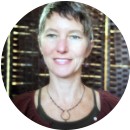 Kristen Dotti earned her bachelor’s degree in Environmental Education from Prescott College and her master’s in Biology through research in molecular genetics from Northern Arizona University. She has been teaching math and science for more than 30 years and providing professional development workshops for teachers for 15 years. Kristen works with faculty at schools all over the U.S. to help them meet their professional development goals for curriculum design and approaches to learning through hands-on, student-centered teaching and learning techniques. Kristen Dotti earned her bachelor’s degree in Environmental Education from Prescott College and her master’s in Biology through research in molecular genetics from Northern Arizona University. She has been teaching math and science for more than 30 years and providing professional development workshops for teachers for 15 years. Kristen works with faculty at schools all over the U.S. to help them meet their professional development goals for curriculum design and approaches to learning through hands-on, student-centered teaching and learning techniques.
7. Writing as an Experiential Process: How Writing Assignments Can Be a Vehicle for Learning About The World
Facilitator: Lauren Heuser
Description: Too often, students are encouraged to treat writing assignments as academic exercises — they craft carefully worded intellectual arguments that have little bearing in reality. At News Decoder, we take the opposite approach to writing. We believe writing should be just one step in an immersive and experiential process that changes how students see themselves, others and the world. Our workshop will ask participants to put themselves in students’ shoes and follow our four-step process — Pitch, Report, Draft, Revise — which is designed to help students identify issues of global significance, seek out experts and primary sources, conduct interviews, write succinctly and clearly, and collaborate with editors in creating a unique story that enlightens both the author and readers around the world.
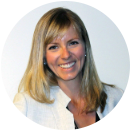 Lauren Heuser is the chief strategy officer of News Decoder, a global educational news service for young people. News Decoder partners with schools around the world to teach journalistic skills that equip students to think critically about global issues, empathize with diverse perspectives and communicate their ideas with authority, balance and clarity. Lauren has a Master in Business Administration from INSEAD and a Law Degree from the University of Toronto. She previously worked as a deputy editor and journalist for a national Canadian newspaper. Prior to entering journalism, she practiced for three years as a corporate lawyer at a leading international law firm. Lauren Heuser is the chief strategy officer of News Decoder, a global educational news service for young people. News Decoder partners with schools around the world to teach journalistic skills that equip students to think critically about global issues, empathize with diverse perspectives and communicate their ideas with authority, balance and clarity. Lauren has a Master in Business Administration from INSEAD and a Law Degree from the University of Toronto. She previously worked as a deputy editor and journalist for a national Canadian newspaper. Prior to entering journalism, she practiced for three years as a corporate lawyer at a leading international law firm.
Return to top
|
Experiential Education Tools
8. Reflection Brings Learning to Life: Experiential, Brain-Based Approaches to Integrate Academic and Social-Emotional Learning to Create Lasting Meaningful Lessons
Facilitator: Jen Stanchfield
Description: Join this interactive workshop and explore tangible ways to take advantage of teachable moments and bring learning to life with engaging student-centered reflection techniques for remote and in-person learning. Enliven traditional sharing circle with active, brain-based methods including movement, metaphor, art, and interactive dialogue to increase emotional connection, relevancy, and depth of understanding. Take away inspiration, new perspectives, and practical tools for weaving meaningful reflection and connection throughout learning. Create lasting lessons and help students become lifelong reflective learners.
In this engaging, co-creative session we will explore insights into the concept of reflective practice; viewing reflection as an ongoing and enjoyable part of learning experiences rather than an “add on” or didactic “follow up.” Participants will leave with strategies for increasing choice, voice, and ownership in learning experiences.
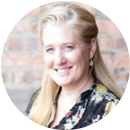 Jen Stanchfield works with schools worldwide to increase meaningful engagement, integration of social-emotional learning with academic content, reflection, and community building in the classroom and beyond. Jen's depth of experience, creativity, and knowledge of educational theory and practice is evident in her innovative yet practical workshops and publications in which she incorporates the art of teaching and facilitation with neuroscience and pedagogical research. Jen earned her Master’s degree in Experiential Education at Minnesota State University and continues to pursue the latest research on pedagogy and the emerging field of educational neuroscience. Jen is author of Tips and Tools for The Art of Experiential Group Facilitation, and Inspired Educator, Inspired Learner: Experiential, Brain-Based Activities and Strategies to Engage, Motivate, Build Community and Create Lasting Lessons. She is the creator and regular contributor to the Inspired Educator Blog at www.experientialtools.com. Jen Stanchfield works with schools worldwide to increase meaningful engagement, integration of social-emotional learning with academic content, reflection, and community building in the classroom and beyond. Jen's depth of experience, creativity, and knowledge of educational theory and practice is evident in her innovative yet practical workshops and publications in which she incorporates the art of teaching and facilitation with neuroscience and pedagogical research. Jen earned her Master’s degree in Experiential Education at Minnesota State University and continues to pursue the latest research on pedagogy and the emerging field of educational neuroscience. Jen is author of Tips and Tools for The Art of Experiential Group Facilitation, and Inspired Educator, Inspired Learner: Experiential, Brain-Based Activities and Strategies to Engage, Motivate, Build Community and Create Lasting Lessons. She is the creator and regular contributor to the Inspired Educator Blog at www.experientialtools.com.
Return to top
|
Global Education & Engagement Amidst COVID-19
9. The Road Ahead: Hybrid Models of Global Education
Facilitators: Seth Leighton & Mason Hults
Description: For many global educators, the past year has required active creation of new forms of programming, learning to utilize unfamiliar resources, discarding suddenly-obsolete practices, and establishing a trusted community of like-minded travelers. Tempting mirages are beginning to appear in the distance, promising a return to ‘the way things used to be’.
However, the reality is that global education, writ large, was sorely in need of a re-imagining. Instead of simply resuming our past programming, we need to look at the practices from 2020 that have value for the future and address the issues of climate damage, social justice, and inequity that have long been inherent in our work.
Participants in this highly interactive workshop will work together to expand their toolkits for virtual and ‘live’ programming, leaving with a newly designed hybrid program/experience, as well as a process to use with their school communities when moving forward.
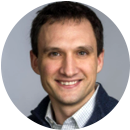 A co-founder of Envoys, Seth Leighton currently serves as the Senior Vice President, Education for the organization. Seth grew up in a small town on the coast of Maine, regularly exploring the outdoors with his friends and family. His desire for adventure and exploration has led him around the world, and he has lived, worked, and traveled in over sixty countries on six continents. Seth graduated from Harvard College, and has earned advanced degrees from the Harvard Graduate School of Education and the Fletcher School of Law and Diplomacy. A co-founder of Envoys, Seth Leighton currently serves as the Senior Vice President, Education for the organization. Seth grew up in a small town on the coast of Maine, regularly exploring the outdoors with his friends and family. His desire for adventure and exploration has led him around the world, and he has lived, worked, and traveled in over sixty countries on six continents. Seth graduated from Harvard College, and has earned advanced degrees from the Harvard Graduate School of Education and the Fletcher School of Law and Diplomacy.
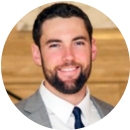 Mason Hults is an educator dedicated to a systems approach to global education. He brings his background in nonviolent communication and language learning to every subject he teaches. He has worked and lived mostly in rural areas working on projects in many sectors including education, agriculture, microfinance and ecotourism. Mason is a graduate of the Harvard Graduate School of Education where he studied bilingual learners, moral mentoring, cultural awareness and human development. Mason Hults is an educator dedicated to a systems approach to global education. He brings his background in nonviolent communication and language learning to every subject he teaches. He has worked and lived mostly in rural areas working on projects in many sectors including education, agriculture, microfinance and ecotourism. Mason is a graduate of the Harvard Graduate School of Education where he studied bilingual learners, moral mentoring, cultural awareness and human development.
Return to top
|
Leading Experiential Schools
10. Re-envisioning the Future of your Independent School in a Very Shifting Landscape
Facilitator: Ed Maggart
Description: Designed for school leaders and administrators, we will explore what the last year has revealed about the mission, effectiveness, and financial sustainability of independent schools, with special emphasis on experientially inspired schools. We will delve into these areas through: a) "front-loading" by considering data on various current trends in financial, inclusivity, and programmatic aspects of independent schools: b) small group virtual "experiential" activities aimed at exploring what experiential education means in the face of the mix of in-person and virtual teaching, COVID restrictions on community/outdoor activities, and inclusivity issues; and c) follow-up "reflection" activities and discussion.
Each participant will then go through a process to draw a picture of sustainability at their school from the perspective of finances, program and teaching model, inclusivity, or some other aspect. From this picture participants will be led to "conceptualize" an idea to address a new direction/idea/vision for their school aimed to leapfrog past a problem towards a new vision for that aspect of independent schools. Participants will leave with the outline of an idea for "active experimentation" when they return to their role at school. We will draw from the experience/expertise of the individuals present to holistically dive into re-envisioning the path forward for your school!
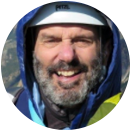 Ed Maggart has 40 years of experience as an independent school classroom teacher, outdoor program director, professional development guide, head of school, and now educational consultant. He has worked at a boarding high school, a prek-8 day school, and done adjunct work at the college/grad school level. Ed helped found the Experiential Education Exchange (EEE), an experiential education non-profit in St. Louis; served on the board for the Independent Schools of St. Louis Association; and currently serves as chair of the Finance Committee for the Association of Experiential Education (AEE). Ed Maggart has 40 years of experience as an independent school classroom teacher, outdoor program director, professional development guide, head of school, and now educational consultant. He has worked at a boarding high school, a prek-8 day school, and done adjunct work at the college/grad school level. Ed helped found the Experiential Education Exchange (EEE), an experiential education non-profit in St. Louis; served on the board for the Independent Schools of St. Louis Association; and currently serves as chair of the Finance Committee for the Association of Experiential Education (AEE).
Return to top
|
Risk Management / Travel / Outdoor Education
11. Aligning Your Outdoor Program's Risk Management Practices with Equity & Inclusion Efforts
Facilitators: Steve Smith, Moleek Busby, and Taylor Feldman
Description: COVID and related global crises have exposed how different populations have been unevenly impacted. At the same time, traditional risk management practices have often had the unintended effect of perpetuating the status quo (protecting organizations) rather than aligning with progressive thinking or efforts towards equity and inclusion. This workshop offers schools an opportunity to recognize the difference between traditional risk management systems and ways to practically update these systems to align with JEDI (Justice, Equity, Diversity, and Inclusion) efforts, and to focus on emotional safety as well as physical / medical safety. After an overview of the ways in which traditional risk management systems tend to protect organizations at the expense of inclusion, participants will engage in activities to explore risk management systems from a 360 degree view, including aspects as widely-ranging as medical screening, program design, HR practices and hiring, staff training, incident reporting, logistics and equipment, medical supplies and protocols, etc. Please come to this workshop prepared to have some assumptions challenged, and some blind spots recognized!
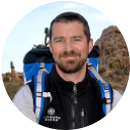 Steve Smith is the founder of Experiential Consulting, LLC, specializing in Risk Management For Outdoor Programs. He has over 30 years of experience in the outdoor industry and served as the Chair of the Wilderness Risk Management Conference for three years. Steve Smith is the founder of Experiential Consulting, LLC, specializing in Risk Management For Outdoor Programs. He has over 30 years of experience in the outdoor industry and served as the Chair of the Wilderness Risk Management Conference for three years.
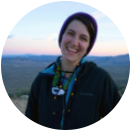 Taylor Feldman is a Lead Guide and the Outdoor Programs Manager who is passionate about mountaineering, foraging, dancing, fermenting, and forest-bathing. Based in Portland, OR, she has been with Mount St Helens Institute since 2017, and in her decade-long career as a wilderness instructor she has led teams up more than 50 peaks in the US and abroad. She holds certifications as a Wilderness First Responder, Leave No Trace Master Educator, and Avalanche AIARE Level 1. Other recent accomplishments include co-creating "Building a Culture of Accountability," a workshop on how to repair after white people cause racist harm; co-authoring a chapter on equity in the outdoors as it pertains to Wilderness Risk Management (to be published early 2021); and being the Lead Guide and a feature narrative of "Who's On Top? LGBTQs Climb Mount Hood," a documentary which premiered Fall 2020. Taylor Feldman is a Lead Guide and the Outdoor Programs Manager who is passionate about mountaineering, foraging, dancing, fermenting, and forest-bathing. Based in Portland, OR, she has been with Mount St Helens Institute since 2017, and in her decade-long career as a wilderness instructor she has led teams up more than 50 peaks in the US and abroad. She holds certifications as a Wilderness First Responder, Leave No Trace Master Educator, and Avalanche AIARE Level 1. Other recent accomplishments include co-creating "Building a Culture of Accountability," a workshop on how to repair after white people cause racist harm; co-authoring a chapter on equity in the outdoors as it pertains to Wilderness Risk Management (to be published early 2021); and being the Lead Guide and a feature narrative of "Who's On Top? LGBTQs Climb Mount Hood," a documentary which premiered Fall 2020.
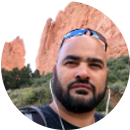 Moleek Busby- Field Operations Senior Manager for the Washington Trails Association (www.wta.org). Moleek has over 13 years experience in the outdoors Guiding leading, recruiting coordinating and facilitating outdoor recreation through a JEDI lense. Also a second member of the Wilderness Risk Management Conference committee (WRMC)and a first-year member of the North Western Outward Bound safety committee. Moleek's current role with WTA focuses on risk management and from a hybrid model of holistic and data-driven approach to keeping humans safe in the outdoors. He loves hiking, backpacking, swimming, kayaking, car "glamping" and getting some trail work in when possible. He is passionate about advocating for marginalized people to have ownership in their space, and to feel safe while volunteering and recreating on public lands. Moleek Busby- Field Operations Senior Manager for the Washington Trails Association (www.wta.org). Moleek has over 13 years experience in the outdoors Guiding leading, recruiting coordinating and facilitating outdoor recreation through a JEDI lense. Also a second member of the Wilderness Risk Management Conference committee (WRMC)and a first-year member of the North Western Outward Bound safety committee. Moleek's current role with WTA focuses on risk management and from a hybrid model of holistic and data-driven approach to keeping humans safe in the outdoors. He loves hiking, backpacking, swimming, kayaking, car "glamping" and getting some trail work in when possible. He is passionate about advocating for marginalized people to have ownership in their space, and to feel safe while volunteering and recreating on public lands.
12. Creating a Learning Culture: Take the “Eek-factor” Out of Discussions on Diversity in Outdoor Education.
Facilitators: Rachel Hailey & Bryn Lottig
Description: Discussions around privilege, hidden biases and stereotypes often create uncomfortable or “eek” feelings. Through Rachel’s experience working with hundreds of organizations, she has identified and refined key activities that are foundational to creating a safe space where participants can engage and explore diversity, equity and inclusion. Through these interactive activities, Bryn and Rachel will model how to create an inclusive outdoor program culture where all members are able to feel safe, increase self- and other-awareness, practice empathy, and build meaningful relationships no matter their circumstances.
Through her 20 years working in DEI, Rachel has gained experience on the most important foundational Diversity, Equity and Inclusion activities to create a safe space and lay the foundation for meaningful, reflective interactions from participants. In this workshop, Kikori Co-founder, Bryn Lottig, and DEI Practitioner and Leader, Rachel Hailey, will collaborate to present DEI-focused activities for Outdoor Educators intentionally sequenced into a playlist that will be available on the Kikori app. Kikori is a new experiential education app that provides a database of activities at practitioners’ fingertips.
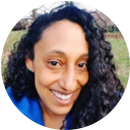 Rachel Hailey is the Owner/Transformationalist at Rachel Hailey & Associates Consulting, a firm which deals directly with the outdoor industry to foster DEI in organizations. Rachel is committed to creating an industry where anyone can experience, thrive, and lead in the out of doors no matter their circumstances, and has a focus on underserved and underrepresented communities. She has served and inspired over 100 organizations in the creation of actionable systems aligned with creating diversity, equity, and inclusion in outdoor spaces. She is a frequent writer for industry publications like Adventure Park Insider and SAM, and has given talks on DEI & Social Justice on international platforms. Outside of her endeavor to bridge the gap between racial and ethnic diversity in the outdoors and social justice, Rachel can be found hunting fairies in the woods with her daughter. Rachel Hailey is the Owner/Transformationalist at Rachel Hailey & Associates Consulting, a firm which deals directly with the outdoor industry to foster DEI in organizations. Rachel is committed to creating an industry where anyone can experience, thrive, and lead in the out of doors no matter their circumstances, and has a focus on underserved and underrepresented communities. She has served and inspired over 100 organizations in the creation of actionable systems aligned with creating diversity, equity, and inclusion in outdoor spaces. She is a frequent writer for industry publications like Adventure Park Insider and SAM, and has given talks on DEI & Social Justice on international platforms. Outside of her endeavor to bridge the gap between racial and ethnic diversity in the outdoors and social justice, Rachel can be found hunting fairies in the woods with her daughter.
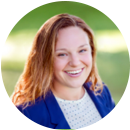 Bryn Lottig is the co-founder of Kikori, an app for educators that aligns experiential education activities with teaching and social-emotional standards. Bryn is a sought-after expert in experiential education and an Adventure Program Coordinator at Arbor Vitae-Woodruff, an Expeditionary Learning school. She received her Master's degree in Adventure Based Experiential Education from the University of Wisconsin-La Crosse. Although she has over a decade of experience working with youth, she really refined her facilitation skills by working in the Leadership Program at Camp Manito-Wish YMCA for the last 10 years. She lives with her husband and two children in Northern Wisconsin. Bryn Lottig is the co-founder of Kikori, an app for educators that aligns experiential education activities with teaching and social-emotional standards. Bryn is a sought-after expert in experiential education and an Adventure Program Coordinator at Arbor Vitae-Woodruff, an Expeditionary Learning school. She received her Master's degree in Adventure Based Experiential Education from the University of Wisconsin-La Crosse. Although she has over a decade of experience working with youth, she really refined her facilitation skills by working in the Leadership Program at Camp Manito-Wish YMCA for the last 10 years. She lives with her husband and two children in Northern Wisconsin.
Return to top
|
Social-Emotional Well Being
13. Co-Liberatory Collaborations: Creating Strategic Coalitions that are Rooted in Relationship
Facilitators: Emily Schorr Lesnick (she/her) and Ashley Lipscomb (she/her)
Description: Relationships, when authentic, make space for the reckonings within and between us. Our global crises have reminded us of the interconnectedness of humanity, and we want to show what that looks like in independent schools, which are often rooted in one-directional transactional dynamics. We bring a transformative justice and abolitionist teaching approach to our work. We aren't here to dispose of people who aren't there yet; we are here to find our co-liberation. Participants will come away with: A framework/methodology for reflecting on current relationships and collaborations; Actionable accountability guidelines; References to further reading and learning; Connecting with other colleagues who might be accountability partners outside or within your schools.
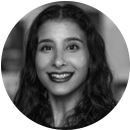 Emily Schorr Lesnick (she/her) is a facilitator and theater maker, currently the Director of Social Emotional Learning at University Prep in Seattle, WA. She previously worked as the Upper School Director of Service Learning and Associate Director of Community Engagement at Riverdale Country School in the Bronx, NY. Emily Schorr Lesnick (she/her) is a facilitator and theater maker, currently the Director of Social Emotional Learning at University Prep in Seattle, WA. She previously worked as the Upper School Director of Service Learning and Associate Director of Community Engagement at Riverdale Country School in the Bronx, NY.
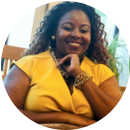 Ashley Y. Lipscomb (she/her), CEO of the Institute for Anti-Racist Education,has a wealth of experience working with, motivating, and advocating for students and educators. During her time in the classroom, Ashley advocated for the expansion of the language arts curriculum, leading to the incorporation of young adult literature that portrayed the Black experience. She also worked closely with school administrators to address pipeline issues contributing to the lack of a representative teaching staff. A graduate of Hampton University (BA English and Master in Teaching), Harvard Divinity School (MDiv) and Montclair State University (Certificate in Supervision), Ashley has participated in and spearheaded several committees focused on diversity, equity, and inclusion in both K-12 and higher education settings. Utilizing her research, she has created a unique framework to address the systemic racism that is deeply embedded in pedagogical practices and colonized curriculums which impedes the most vulnerable populations of students from flourishing. Ashley Y. Lipscomb (she/her), CEO of the Institute for Anti-Racist Education,has a wealth of experience working with, motivating, and advocating for students and educators. During her time in the classroom, Ashley advocated for the expansion of the language arts curriculum, leading to the incorporation of young adult literature that portrayed the Black experience. She also worked closely with school administrators to address pipeline issues contributing to the lack of a representative teaching staff. A graduate of Hampton University (BA English and Master in Teaching), Harvard Divinity School (MDiv) and Montclair State University (Certificate in Supervision), Ashley has participated in and spearheaded several committees focused on diversity, equity, and inclusion in both K-12 and higher education settings. Utilizing her research, she has created a unique framework to address the systemic racism that is deeply embedded in pedagogical practices and colonized curriculums which impedes the most vulnerable populations of students from flourishing.
Return to top
|
Social Justice / Anti-Racist Work
14. Teaching to the Racial Reckoning: Increasing Teacher Fluency to Increase Student Fluency
Facilitator: Lora McManus-Graham
Description: Research shows that as teachers' fluency and cultural competency increases, so too do their students'. This interactive workshop will inspire teachers and administrators to breakdown the barriers of DEIJ (diversity, equity, inclusion, and justice) literacy and White Supremacy culture in schools. What intersectional identities make up who you are? Which avenues are most accessible to discuss identity with elementary students? How do you embark on conversations of equity with students and adults alike? Take off your teacher hat, and step into this workshop as a K-12 student. This interactive workshop will center the experiential learning pedagogical strategy of modeling as participants will have the opportunity to engage with various tools as learners. This workshop is designed for all participants, but will be most beneficial for teachers and administrators at an intermediate understanding of DEIJ content.
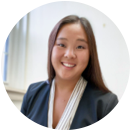 Lora Mei McManus-Graham serves as independent DEI consultant and the PK-12 Chair of Equity & Instruction at The Blake School in Minneapolis, Minnesota. As the product of two Los Angeles independent schools, she is deeply passionate about inspiring change from within. A former elementary and middle school teacher, devoted attendee of NAIS’ SDLC and PoCC, and DEI consultant, McManus-Graham focuses specifically on actionable steps to reconcile school culture and create schools in which families and employees of color feel not only in the space, but of the space—the critical difference between inclusion and belonging. McManus-Graham has an M.A. in Curriculum and Instruction & Education Administration from Cal State Channel Islands where she authored Experiences of Discrimination and Microaggressions towards Women of Color in Independent School Headships. Lora Mei McManus-Graham serves as independent DEI consultant and the PK-12 Chair of Equity & Instruction at The Blake School in Minneapolis, Minnesota. As the product of two Los Angeles independent schools, she is deeply passionate about inspiring change from within. A former elementary and middle school teacher, devoted attendee of NAIS’ SDLC and PoCC, and DEI consultant, McManus-Graham focuses specifically on actionable steps to reconcile school culture and create schools in which families and employees of color feel not only in the space, but of the space—the critical difference between inclusion and belonging. McManus-Graham has an M.A. in Curriculum and Instruction & Education Administration from Cal State Channel Islands where she authored Experiences of Discrimination and Microaggressions towards Women of Color in Independent School Headships.
15. Re-Imagining Our Civic Memory: Designing Monuments and Memorials for a Just and Inclusive City
Facilitators: Andrew Meyers and Tanya Gallo
Description: This workshop engages the questions: How do cities establish their identity through commemoration? Who decides what and whom we remember and celebrate in the public realm? How can we design monuments and memorials that reckon with our problematic history and reimagine a more just city?
By reckoning with the assumptions embedded in public history and memorial, our workshop asks participants to reflect upon the narratives and power structures that maintain the status quo. The present moment has opened opportunities to interrogate, expand and rebuild the public realm and civic imagination in pursuit of social justice and equity, making visible untold histories and hidden narratives.
Our workshop mimics as closely as possible what students might experience in immersive expeditions and design labs. We will ask participants to do original field research before the workshop, including videography and photography. During the workshop we cultivate presentation skills and critical thinking, modeling student-centered learning, collaboration and group work in breakout rooms. The core activity employs project-based design thinking tools that are replicable in many learning situations, including brainstorming, ideating, prototyping, iterating, presenting, etc. Finally, participants will employ varied media to communicate their research and designs.
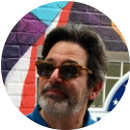 Andrew Meyers has dedicated over 30 years to high school and college education, specializing in urban history and experiential learning. Andrew taught and served in leadership for 23 years at the Ethical Culture Fieldston School, where he was History Department Chair, Interdisciplinary Studies Director, and Founding Director of the City Semester Program, supervising an interdisciplinary team of teachers to lead students in an exploration of NYC though expeditionary learning. Andrew Meyers has dedicated over 30 years to high school and college education, specializing in urban history and experiential learning. Andrew taught and served in leadership for 23 years at the Ethical Culture Fieldston School, where he was History Department Chair, Interdisciplinary Studies Director, and Founding Director of the City Semester Program, supervising an interdisciplinary team of teachers to lead students in an exploration of NYC though expeditionary learning.
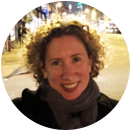 Tanya Gallo is an urban planner and educator with a focus on resilience, public space and educational access. She received her MSc in Urbanization and Development at the London School of Economics and was a 2008-9 recipient of the Charles H. Revson Fellowship at Columbia University. Tanya designed and led DreamYard’s ACTION program, an award-winning arts and social justice program for Bronx high school students. Tanya Gallo is an urban planner and educator with a focus on resilience, public space and educational access. She received her MSc in Urbanization and Development at the London School of Economics and was a 2008-9 recipient of the Charles H. Revson Fellowship at Columbia University. Tanya designed and led DreamYard’s ACTION program, an award-winning arts and social justice program for Bronx high school students.
16. Community Remembrance and Reconciliation as Curriculum: Montgomery County Lynching Memorial Project
Facilitators: Lesley Younge, Michael V. Williams, and Anthony Cohen
Description: Our workshop will give educators an opportunity to reflect on their local communities and unearth the difficult conversations about historical identity-based injustice that might be overlooked or avoided in the classroom. Collaboratively, we will build strategies for engaging young people in this history of which they are living part, as we seek to inspire them to build more equitable futures. We cannot fix what we do not know about and histories not studied are bound to be repeated. We will review the work of the Montgomery County (Maryland) Lynching Memorial Project as a case study for community remembrance and reconciliation. MoCoLMP facilitates the Equal Justice Initiative (EJI) model of community remembrance and reconciliation and is deeply influenced by the work of Bryan Stevenson. Local Montgomery County educator Michael V. Williams will describe his experience building curriculum around the lynching history of Montgomery County and incorporating it into high school programs at the classroom, school, and district level. We invite educators to reflect on narratives of historical conflict and/or reconciliation within their own communities, to conduct or present research on those topics, and to collaboratively build curricular ideas and resources for integration into the classroom and campus. We will equip teachers with tools for partnering with community historians, engaging with community organizations, and integrating local history in current and future curricula.
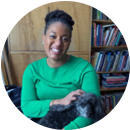
Lesley Younge is a middle school educator at Maret School in Washington DC, and this is her 15th year in the independent school classroom. She is also a member of the Montgomery County Lynching Memorial Project
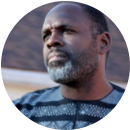
Montgomery County native Michael V. Williams is a social studies resource teacher at John F. Kennedy High School and co-coordinator of the school system’s Minority Scholars Program, an initiative aimed at reducing the opportunity gap by expanding the number of African American and Latino students in honors and AP courses. He recently narrated the film "The Three (Known) Lynchings of Montgomery County, Maryland" steering committee.
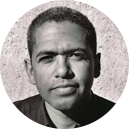 Historian and Montgomery County native Anthony Cohen has traveled thousands of miles by foot, boat, rail (and mail crate) to trace the steps of runaway slaves on the Underground Railroad. Cohen is a member of the Montgomery County Lynching Memorial Project, and is president of the Menare Foundation, Inc., which operates the Button Farm Living History Center on 40 acres inside Seneca Creek State Park in Germantown, MD. The farm is Maryland’s only living history center dedicated to depicting 19th century slave plantation life. Historian and Montgomery County native Anthony Cohen has traveled thousands of miles by foot, boat, rail (and mail crate) to trace the steps of runaway slaves on the Underground Railroad. Cohen is a member of the Montgomery County Lynching Memorial Project, and is president of the Menare Foundation, Inc., which operates the Button Farm Living History Center on 40 acres inside Seneca Creek State Park in Germantown, MD. The farm is Maryland’s only living history center dedicated to depicting 19th century slave plantation life.
17. Building a Justice-Based Service-Learning or Community Engagement Program
Facilitators: Stacey Sharer, Venneikia Willimas and Meg Evans
Description: For 30 years, Break Away has trained college, university, and high school staff and students to approach community-based service-learning in equitable and informed ways. Our trainings focus on how educational programs can cultivate anti-racism through attention to program elements and an interrogation of process, policies, and activities. In this workshop, we will review what is means to be anti-racist and how some community-based service-learning programs have failed in the past to reach this ideal. We will then introduce our program element and partnership selection rubrics that we have recently redesigned to focus on equity and inclusion. We will give participants time to talk through where their programs or classes fall on the rubric and discuss ideas for improvement. Lastly, we will review some examples of service-learning programs that currently work to implement and promote anti-racist practices. Our organization, like many in the country right now, is reckoning with the fact that our work - community-based service-learning - is rooted in racism, white supremacy, and often "white saviorism." As we reflect on how to undo aspects of our organization that have grown out of these oppressive systems, we also push our participant schools and organizations to do the same. This workshop does not shy away from naming the harm that service-learning programs have inflicted on communities, but we also lay out possible paths toward doing better going forward. Participants will be able to name ways in which community-based service learning programs have been harmful to communities in the past and continue to do so today. Participants will leave with at least 2-3 ideas of how to redesign existing or create new programs or lessons within an anti-racist framework.
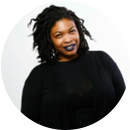 Venneikia Williams is the Community Director at Break Away. With a bachelors in Sociology from UNC-Chapel Hill and a masters of divinity from Covenant Seminary, Venneikia’s interests lie within the intersections of race, gender, and faith. Her womanist lens informs the work she does here at Break Away, teaching people and organizations how to be active, informed change makers. Venneikia Williams is the Community Director at Break Away. With a bachelors in Sociology from UNC-Chapel Hill and a masters of divinity from Covenant Seminary, Venneikia’s interests lie within the intersections of race, gender, and faith. Her womanist lens informs the work she does here at Break Away, teaching people and organizations how to be active, informed change makers.

Dr. Meg Evans, Programs Director at Break Away is an experienced facilitator with over a decade of student affairs practitioner experience in queer and trans student services and housing at the University of Georgia (UGA), Carnegie Mellon University, Guilford College, and Warren Wilson College. Meg has a bachelors in Outdoor Leadership from Warren Wilson College, a master’s in Community Leadership from Duquesne University, and a PhD from the Mary Frances Early College of Education at UGA. Their research focuses on student activism and racial justice in the academy.
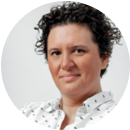 Stacey Sharer serves as the Executive Director of Break Away and brings more than 20 years of nonprofit experience in education, workforce development, entrepreneurship and national service. Stacey has an MBA in Public and Nonprofit Management from Boston University, a BA in Literature from University of Georgia, and is an alum of City Year Boston and Education Pioneers in New Orleans. Stacey Sharer serves as the Executive Director of Break Away and brings more than 20 years of nonprofit experience in education, workforce development, entrepreneurship and national service. Stacey has an MBA in Public and Nonprofit Management from Boston University, a BA in Literature from University of Georgia, and is an alum of City Year Boston and Education Pioneers in New Orleans.
18. A Call To Action: Civics for Social Justice
Facilitators: Jenny Cooper and Amina Loftin
Description: What does it mean to have a democracy on stolen land? What does it mean to have a democracy built on the backs of enslaved people? How might your identities impact your perception of government and your civic engagement in the United States?
The 2020 U.S. election was one of the most important elections in the lifetimes of young people around the world in relation to racial justice, climate change, and public health. However, with the election behind us, our work has only just begun.
This workshop aims to inspire and mobilize educators to create experiential education opportunities for their students to identify issues they care about, explore their personal identities and history, and meaningfully engage with local, state, and federal government.
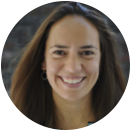 Jenny Cooper is the Director of Environmental Education & Sustainability at The Northwest School, in Seattle, WA. In this role, she leads school-wide efforts to maximize learning opportunities while minimizing environmental impact, and strives to cultivate critically engaged community members--students, faculty, staff, parents, and board members--who have a deep understanding of the natural systems on which we depend, our impact on those systems, and the inextricable link between environmental sustainability and social justice. Prior to joining Northwest, Jenny spent seven years working on climate change policy at the international and local levels, including roles in nonprofits, city government, and the private sector. Jenny Cooper is the Director of Environmental Education & Sustainability at The Northwest School, in Seattle, WA. In this role, she leads school-wide efforts to maximize learning opportunities while minimizing environmental impact, and strives to cultivate critically engaged community members--students, faculty, staff, parents, and board members--who have a deep understanding of the natural systems on which we depend, our impact on those systems, and the inextricable link between environmental sustainability and social justice. Prior to joining Northwest, Jenny spent seven years working on climate change policy at the international and local levels, including roles in nonprofits, city government, and the private sector.
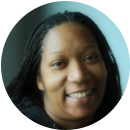 Amina Loftin has many roles at The Northwest School in Seattle, WA including Accounts Payable/Payroll Coordinator, co-leader of the Advancing Equity Team, faculty advisor for the Black Student Union, and leader of the Faculty of Color group. In 2019 and 2020, she attended the NAIS People of Color Conference and helped facilitate student engagement in the Student Diversity Leadership Conference. Amina is inspired by the community at The Northwest School and seeks out opportunities to make the world around her a better place through student engagement, facilitating conversations, and creating connections. Amina Loftin has many roles at The Northwest School in Seattle, WA including Accounts Payable/Payroll Coordinator, co-leader of the Advancing Equity Team, faculty advisor for the Black Student Union, and leader of the Faculty of Color group. In 2019 and 2020, she attended the NAIS People of Color Conference and helped facilitate student engagement in the Student Diversity Leadership Conference. Amina is inspired by the community at The Northwest School and seeks out opportunities to make the world around her a better place through student engagement, facilitating conversations, and creating connections.
Return to top
|
|